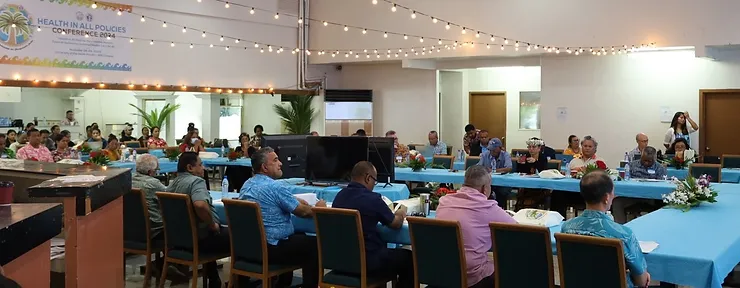Marshall Islands President Hilda Heine has issued a call to action to address the escalating crisis of non-communicable diseases in the country.
“This is no longer a future concern; this is the present, and the time to act is now,” Heine said, keynoting the Health in All Policies Conference 2024 held on 28 November at the USP Conference Hall in Majuro.
Stressing the urgent need for transformative policy interventions and collective responsibility, Heine reiterated the Marshall Islands’ commitment to universal health coverage.
According to statistics, NCDs are responsible for over 80 percent of deaths in the Marshall Islands and the trends are worsening.
Heine underscored the need for effective, sustainable and comprehensive policies that tackle the root causes of the diseases.
She cited the Marshall Islands’ 2023 hybrid survey, which revealed troubling increases in health risks such as tobacco use, alcohol consumption and hypertension.
“These are not just numbers on a page. They represent real lives being affected by habits and practices that are eroding our health, threatening the future of our people,” she said.
At the same time, she noted areas of progress, including improvements in fruit and vegetable consumption, as signs of hope and proof that change is possible.
“Health is a shared responsibility, and the burden of these diseases affects every aspect of our lives, from families to our economy, our society and our future,” Heine said.
She stressed that addressing the Marshall Islands’ health crisis requires “unity and accountability” from all sectors including lawmakers, community leaders, healthcare professionals and international partners.
The Health in All Policies for a Healthy Nation conference, hosted by the Ministry of Health and Human Services, focused on NCD policy solutions to improve health in the Marshall Islands.
The event brought together Cabinet and parliament members, international partners, and community organisations to discuss strategies for addressing NCDs through policy rather than medical services.














